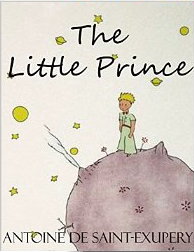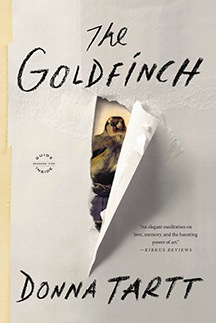On the profundity of book quotes.
I don’t buy printed books anymore. I read ebooks, usually on my iPad, after either buying them or getting them on loan from the library.
Yes, I will agree that there’s something nice about holding a printed book in my hands, smelling the paper when I open it for the first time, and turning physical pages made of real paper as I read. But there’s something even better about being able to carry dozens — if not hundreds — of books with me everywhere I go and to be able to pick up any of them where I left off, no matter where I am.
Besides that, there is no place for printed books in my life these days. I’ve become transient, with most of my physical possessions packed for the day I land, hopefully on my feet, in a new home.
Highlights and Notes
Although I never put pen to paper in any of the printed books I owned — that would be sacrilege! — do “mark up” the ebooks I’ve bought. I do this by highlighting passages and adding notes. I can later go back and review these highlighted passages and think about what they meant to me when I highlighted them — and what they mean to me now.
 I just finished reading Stephen King’s 11/22/63. I’d gotten it for Christmas last year (or maybe the year before) and it has sat on my iPad, downloaded into the Kindle app, for months.
I just finished reading Stephen King’s 11/22/63. I’d gotten it for Christmas last year (or maybe the year before) and it has sat on my iPad, downloaded into the Kindle app, for months.
Reading is one of my few escapes from reality these days, but it isn’t easy for me to do. I have a hard time staying focused on any thought-related task; I do far better with physical tasks. And I have to admit that after taking a long break from Stephen King — the last book of his that I read was The Dead Zone and I didn’t even finish it — I didn’t think his brand of horror thriller would be a good match for my mood. But the book, which centers around time travel to stop John F. Kennedy’s assassination in 1963, wasn’t quite what I expected. It was more historic fiction than horror — no demons in the corn or giant crabs on the beach. It was also long — 853 pages! — and I found it absorbing enough to keep my attention for the several days it took to read. I think I can safely say that I enjoyed it.
Of course, that’s not what this blog post is about. It’s about the truth I found in some of the book’s passages that I highlighted — truth that applies to what I’m going through now.
The latest version of the Kindle app offers four highlighting colors: pink, blue, yellow, and orange. I used pink to highlight five brief passages that made me stop and think about my divorce.
The Crossroads of my Marriage
A good portion of the book deals with the relationship that forms between the protagonist and a woman he meets in his travels. They fall in love, but he’s got a secret that he can’t share with her. It’s got nothing to do with her or their relationship, but his inability to share that information with her is causing problems with their relationship. He writes:
Sometimes a man and a woman reach a crossroads and linger there, reluctant to take either way, knowing the wrong choice will mean the end…and knowing there’s so much worth saving.
In hindsight — which is usually 20/20 — I know when my husband reached the crossroads of our marriage. It was in mid 2011, before I got back from my fourth summer season in Washington.
By the time I got back in October, my husband’s roommate had finally left, leaving our Phoenix condo open for me to move in. We still had the house in Wickenburg, of course; my husband had been living in Phoenix during the week and in Wickenburg on weekends for the previous three years. He had a roommate in Phoenix most of that time and his roommate did not make me feel welcome. So I avoided the place as much as I could. With him gone, however, things changed. We got new furniture and blinds for the condo and I moved my office into the second bedroom. I lived there with my husband and our dog and usually went back to Wickenburg on weekends with them.
I thought being together more would make our relationship better, but it didn’t. My husband never seemed happy; I assumed it was his job, which I knew frustrated and annoyed him. His behavior frustrated and annoyed me. Things deteriorated, fights erupted, he gave me a steady diet of disapproving glances whenever I wanted to do something that he didn’t like. But he never talked to me about what bothered him so I continued believing it was the job.
In reality, he’d reached a crossroads that I hadn’t seen. I don’t know exactly when he got there — I suspect it was during the summer, while I was away. A year later, in September 2012, he told a mutual friend that I hadn’t told him that I loved him when he came to visit me for my birthday in 2011. He was carrying around that disappointment (or anger?) for over a year but hadn’t said a word to me about it. (I never was much of a mind-reader.)
So he reached the crossroads and likely felt very alone. He lingered there, waiting for something — I don’t know what — to happen. Meanwhile, I was chomping at the bit — as I so often am — anxious to move in one direction or another. His malaise and my inability to make it go away by doing what I thought he wanted me to do — making a home for us in the condo — bothered me, but I still didn’t see what the real problem was.
He got to the crossroads without me, while I was spinning my wheels in frustration just down the road. Or maybe up the road.
He lingered at the crossroads of our relationship from at least October 2011 through my departure for my summer season at the end of April 2012. And then he decided on a path — one that clearly proves that he didn’t think what we had was worth saving.
He began looking for my replacement. He found her in the form of a desperate woman eight years older than him, a woman who sent him photos of herself in lingerie, a woman who convinced him to ask for a divorce. A woman who even provided him with lists of divorce attorneys to call, along with the advice that he should call as many as he could because I wouldn’t be able to work with any of the ones he’d spoken to. A woman who called him “baby” and would eventually manage his side of our divorce.
He reached the crossroads of our relationship and made a decision without me. He put his fate in the hands of a stranger. And I’m living — no we’re living — with the fallout from that decision now.
There’s a lesson to be learned here. Relationships need to be completely honest and open. As two people travel through life together, they should do so hand-in-hand so when they reach a crossroads, they reach it together and can guide each other to make the right decision on which way to go.
I wish we’d both understood that.
Undeserved Anger
Later in the book, the main character gets caught lying to his girlfriend. He gets angry about it and thinks:
We never get so mad as when we get caught, do we?
This sentence hit me like a freight train and brought me back to the August day when I discovered that my husband had lied about having an affair and hiring a divorce attorney. I caught him in the lie and texted him about it. He reacted with rage — rage directed at me.
Yes, he was angry at me because I’d caught him in at least two lies.
His reaction bothered me a lot. The man I’d fallen in love with would have been calmer and possibly — but not likely — apologetic. He would have attempted to offer some sort of explanation. He wouldn’t have reacted in angry rage with a threatening and accusatory email response.
As if it were somehow my fault that he’d lied to me.
We never get so mad as when we get caught. I knew firsthand what that meant.
The Bad Dream that Doesn’t End
Later in the book, the main character and his girlfriend have a falling out — mostly because he’s hiding the truth from her. (His motives are good, but how can she understand that when she doesn’t know the full story?) The fight is over and he’s leaving. He’s thinking:
Part of me was thinking this was all just a bad dream, and that I’d wake up soon. Most of me knew better.
This describes my state of mind since June 30, 2012, my birthday, when my husband called me on the phone to ask for a divorce. I didn’t know then that he was probably calling from the home of the woman he was living with, the woman who had become his mommy and would direct his actions against me for the next nine or ten months. Back then, it was just a shock — only weeks before, we’d been discussing him and our dog spending the summer with me.
For months, they subjected me to every form of harassment they could muster, trying to wear me down, trying to make me give in to a proposed settlement that would take away nearly everything I’d worked so hard for my whole life, leaving me homeless with my savings drained. It wasn’t enough to be wronged by his lying and cheating — they wanted to ruin me financially, too. Every time they’d throw some new form of harassment my way, I’d think that what was happening couldn’t possibly be happening. It must all be a dream — a terrible nightmare — and that if I were lucky, I’d wake up soon in my own bed with my husband beside me and my dog at the foot of the bed.
I even dreamed about him. I dreamed about making love with him. I dreamed about him holding me in his arms, comforting me as I sobbed from the grief I feel every day. I dreamed of him saying he was sorry, that he didn’t mean to hurt me, that the woman he left me for meant nothing to him and he was coming back to me.
But there’s no waking from reality, no matter how unreal it seems.
And I know that.
FEAR
In the book, the protagonist had been married to an alcoholic who went to AA. He mentions one of her AA slogans:
FEAR, standing for false evidence appearing real.
This reminded me of the paranoia that my husband and his girlfriend/mommy were apparently suffering from. She followed my Twitter stream like a circling buzzard’s eyes follow the trail of a wounded rabbit. She’d seize upon some innocuous tweet and send it to their lawyer as evidence of some imagined wrong-doing. I tweeted about flushing a dead fish down the toilet and it became evidence that I was destroying my husband’s valuable exotic fish. I tweeted about scanning and shredding documents as part of my paperless filing system and it became evidence that I was destroying my husband’s documents. These claims went as far as the court, along with fifty pages of other tweets, accompanied by demands that I stop destroying my husband’s property and grant him an immediate inspection of our home.
The only problem was, the fish belonged to me, they’d cost less than $10 each, and they were already dead. The papers I was scanning and shredding were all mine. I’m not a complete idiot.
Their — or perhaps just her? — paranoia led to fear: false evidence appearing real.
It’s almost sad to see my husband stuck with someone so psychologically unhinged that she reads between the lines and sees threats everywhere. Almost. But as my friends tell me, he’ll get what he deserves. Apparently he deserves to live out his life with a vindictive and paranoid old woman.
Why Does Life Have to Bite?
The last passage I highlighted is a piece of dialog from the protagonist’s girlfriend. At the risk of sharing a spoiler, let me just say that she was attacked and severely scarred. She says:
“Also, I’m angry. I know life is hard, I think everyone knows that in their hearts, but why does it have to be cruel, as well? Why does it have to bite?”
And this is my problem with the whole situation.
My divorce ordeal — and I really can’t use a more appropriate word — has hit me hard, harder than anything I’ve ever had to live through. My parents’ divorce, deaths among family members and friends, personal illnesses, financial hardships — nothing comes close to the pain and suffering I’m dealing with right now, every day of my life.
There’s no closure until it’s over — and even then I doubt I’ll ever have the closure I need. That’s mostly because I still don’t understand how it happened. I still don’t understand how the man I spent 29 years of my life with could throw away everything we had to shack up with a woman he’d met less than a month before. I still don’t understand how a man I loved and trusted with my life could betray that trust and subject me to the kind of mental torture he’s been throwing at me for the past nine months.
But I need to put things in perspective, as my wiser friends have pointed out.
One friend likes to talk about the hypothetical “little girl with cancer.” Yes, I’m better off than she is. At least I’ve had 51 years of life and most of it was relatively pain-free. The little girl with cancer won’t have that.
And, closer to home, I have a very good friend who is also going through some difficult times with her partner. On so many levels, her situation is far worse than mine.
Or I can just read the news and think about the millions of people worldwide, living in hunger and poverty or in war-torn nations. Losing family members, homes, livelihoods. Living in situations so horrible I can’t begin to imagine what their lives are like. I don’t want to imagine it. Like most other Americans, I’d rather turn a blind eye to the world’s more serious problems and wallow in my own grief.
And I know that’s wrong.
But it’s all relative.
Life is hard, life is cruel, life bites.
I suppose I should be happy that things aren’t worse. But that’s a very difficult proposition to grasp, especially with my future so uncertain after so many years spent planning and ensuring my — no, our — financial security.
My Crossroads
Now I’m approaching a crossroads of my own life. It’s not a place I ever expected to be at age 51. I planned and worked and saved and did everything I thought was best to avoid being someplace like this. I doesn’t seem right that I should be here.
It isn’t right.
But right doesn’t matter. As much as I’d like to believe it does, it really doesn’t. No one really cares about right and wrong. I’m naive to think otherwise.
Eventually, my divorce ordeal will end. The loss of my husband, my dog, my home, and the life I loved will be complete. The man I loved and the dreams I thought we shared will fade away like so many broken and dried autumn leaves on winter’s first cold and windy day. I’ll stand at the crossroads and I’ll make the decisions I need to move forward alone, with whatever the judge decides I’m allowed to keep.
As so many of my friends tell me so often, I’m a strong woman and I’ll be okay.
But I can’t help thinking about the mistakes that were made at that other crossroads, the one I didn’t see. And I’ll always wonder how things could have been different if the man who’d reached that other crossroads had chosen a path that I could rejoin him on.



 My friend
My friend  In my never-ending quest for light reading while I sit around in Wickenburg waiting for my marriage to be terminated, I picked up a copy of
In my never-ending quest for light reading while I sit around in Wickenburg waiting for my marriage to be terminated, I picked up a copy of 
 I just finished reading Stephen King’s
I just finished reading Stephen King’s